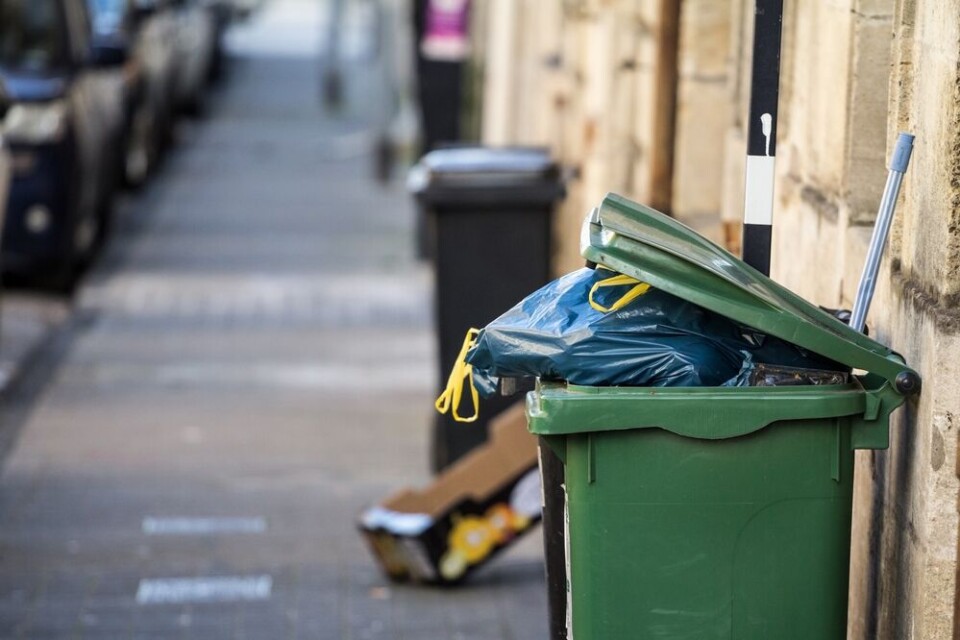-
Warnings after dog poisonings in south of France countryside
More than 20 dogs, including truffle hunting animals, have been poisoned by mysterious pellets
-
Poll: People in France very attached to local public services
Almost four in 10 would support paying more tax to ensure services remain well-funded
-
US ambassador in France snubs official summons over controversial social media post
It is the second time Charles Kushner has failed to attend a summons from the French Foreign Ministry
France considers €3 per bin collection charge
This could reduce household waste by up to 30%, claims the state environmental agency

Article published February 13, 2024, edited February 14, 2024
The introduction of a fee of at least €3 for every bin collection would help to reduce household waste by up to 30%, claims a waste strategy report for communes by the French environmental agency Ademe.
France has set an objective of reducing the volume of household waste by 15% before 2030 relative to 2010 volumes, however current trends show that amounts are still increasing.
Indeed, the volume of general household waste has more than doubled in the past 40 years, said Ademe, on publication of several new reports into the issues.
One report looks into how effective it has been to introduce an 'incentive' part to the local tax on waste collection. This has been introduced in a number of areas in recent years, often in more rural parts of France and especially in the west and east.
Ademe found that:
- Among communes which have introduced this, the most common and most effective method involves a fee per bin collected, and to be really effective in persuading people to put out less waste, it needs to be €3 or more
- Among such communes, those that organise separate bin collection for biowaste achieve less general 'grey bin' waste per person than those that do not
- The best results in terms of lower waste per person are found in communes which organise waste collection every two weeks (rather than each week)
France recently introduced new waste laws obliging households to sort their biowaste (food and vegetable waste) from general waste, as part of the anti-waste AGEC law (anti-gaspillage pour une économie circulaire), which is intended to bring France in line with European law.
Read more: Is everyone in France affected by new obligatory home waste rules?
While the new law includes no fines for people who do not respect the obligation, there were already suggestions that communes might use the bin tax as an incentive for people to play their part.
The report by Ademe confirms communes could take such incentives under serious consideration.
Where it is imposed, the fee per bin will form part of either the taxe d'enlèvement des ordures ménagères (TEOM) which is included on the bill for taxe foncière, or in communes which do not have this, it will be part of the redevance d'enlèvement des ordures ménagères ordures ménagères (REOM) which is similar but is billed separately.
TEOM is payable by all homeowners, whereas REOM is payable only by those that actually use the waste collection service, however local authorities can vote to include an 'incentive' element in either of these on top of a fixed part. The incentive element may be worked out via several methods including per bin collected, by volume (size of bin) or weight of waste.
Ademe also reported on a new scheme, introduced in several parts of France, called Contrat de performance des déchets ménagers et assimilés (CPDMA) whereby there is a special agreement between the local council (or a group of councils) and a private contractor, in which both agree to cooperate to manage waste more effectively in the local area, with a goal of less waste being produced.
Such schemes may be linked to introduction of incentive charges.
Ademe says they contrast with more traditional arrangements whereby contractors bill local authorities according to how much waste they deal with, which creates a contradiction between the aims of the state (to reduce waste) and contractor.
‘Microchips on the bins’
In Montauban (Tarn-et-Garonne), waste collection is managed on a CPDMA basis by Suez. However, the waste collection tax has remained comparable to the national average.
So far the company has used an information campaign rather than increased prices to drive people to sort their waste.
“Suez is fitting microchips to all of the bins to collect data and improve the way we collect the bins,” Grand Montauban director of green waste Mathilde Ensergueix told local newsletter La Gazette des communes.
“Each household has access to a waste counter so they can see how much waste they produce compared to their neighbours and their area, and so they can get personalised advice,” she said.
The report by Ademe notes that the scheme in Montauban had reduced grey bin household waste by 8% after just one year and is on target to reduce its overall household waste by 10% by 2028 relative to 2018 volumes.
Between 2016 and 2021, the population affected by ‘incentive charges’ grew by 44%, from 4.6million to 6.6million.
However Ademe notes that France is still far off a target 25 million people on ‘incentive’ charges by 2025 that was fixed in a 2015 law.
Read more:
French homeowners challenge ‘pay per bag’ waste charge
How much has the ‘rubbish bin’ tax for French homes risen this year?
























